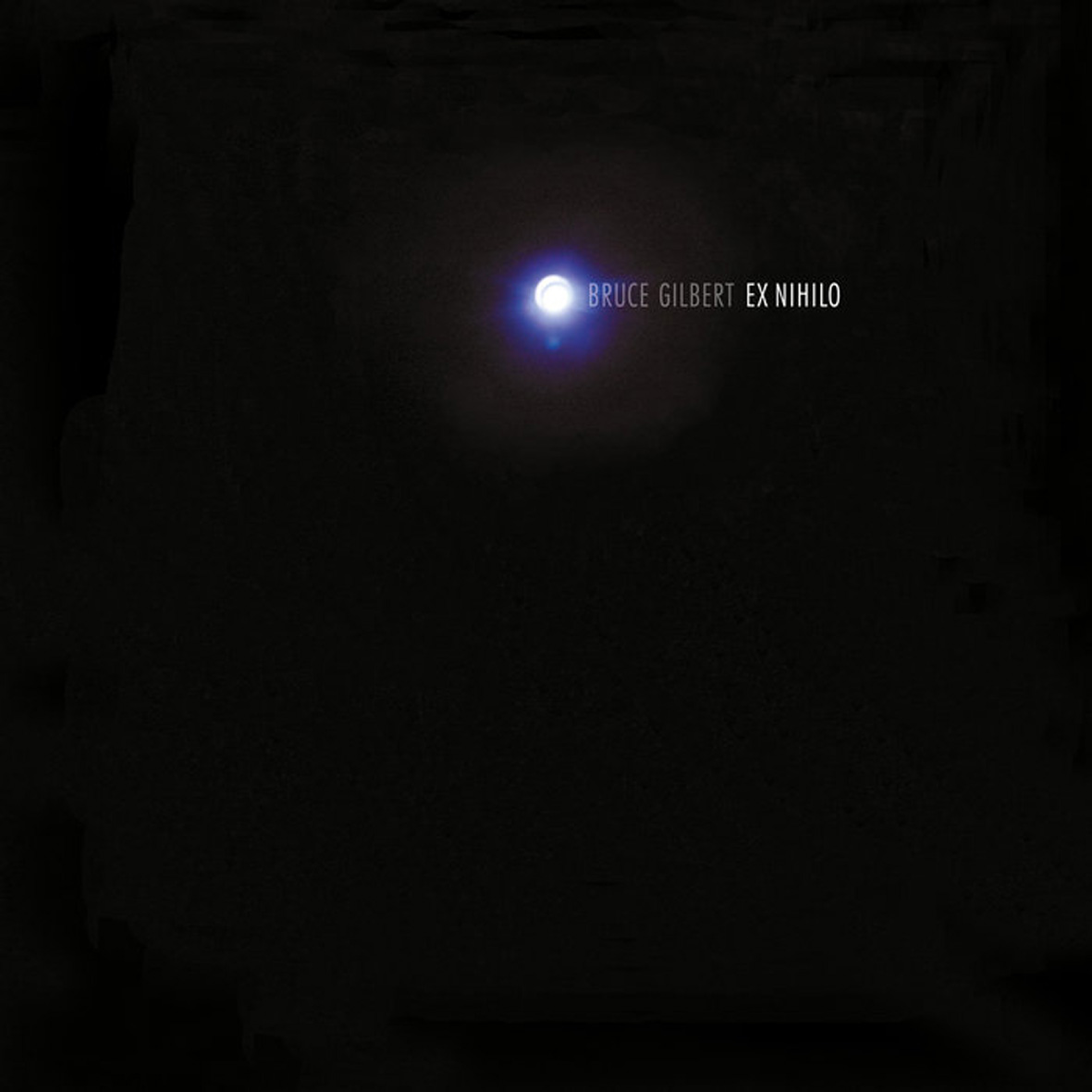 Remarkably, this is the first Bruce Gilbert solo album that I have ever heard in its entirety and I was pleasantly surprised to discover that it is radically different from any of his other work that I have encountered: it is clear that I woefully underestimated the depth and breadth of the Gilbert oeuvre. This latest release continues to delve deeper into the coldly futuristic and menacing vein of his previous Editions Mego album (2009's Oblivio Agitatum), yet does so in wonderfully explosive and visceral fashion. Ex Nihilo feels like the soundtrack for a bleakly alienating dystopian city of endless metal and neon, composed by a cyborg with a fairly hostile disposition. Those hoping for any trace of melody or tenderness in Gilbert's industrial dread should probably skip this one, but there is definitely a gleaming, inhuman majesty to these grinding and throbbing soundscapes.
Remarkably, this is the first Bruce Gilbert solo album that I have ever heard in its entirety and I was pleasantly surprised to discover that it is radically different from any of his other work that I have encountered: it is clear that I woefully underestimated the depth and breadth of the Gilbert oeuvre. This latest release continues to delve deeper into the coldly futuristic and menacing vein of his previous Editions Mego album (2009's Oblivio Agitatum), yet does so in wonderfully explosive and visceral fashion. Ex Nihilo feels like the soundtrack for a bleakly alienating dystopian city of endless metal and neon, composed by a cyborg with a fairly hostile disposition. Those hoping for any trace of melody or tenderness in Gilbert's industrial dread should probably skip this one, but there is definitely a gleaming, inhuman majesty to these grinding and throbbing soundscapes.
The album opens in impressively snarling and hostile fashion with "Undertow," which feels like a randomized and chromatic series of densely throbbing drones that relentlessly moves forward like tank.Despite lasting for over six minutes, it never quite evolves into anything more, which seems to be exactly the point: "Undertow" is essentially just a mercilessly buzzing and roiling juggernaut of a piece.I quite like it, as Gilbert's vision is a fairly singular and powerful one despite its self-imposed limitations.I am especially struck by his talent for self-effacement, as "Undertow" feels like it was created by a malevolent algorithm in a bad mood rather than a human.I suppose plenty of modular synth music also sounds like the direct result of math and circuitry, but what matters is how well an artist is able to harness that power and steer it towards something novel and interesting.In that regard, Gilbert succeeds on two levels.On pieces like "Undertow" and "Hymn," the sounds he gets are truly vibrant, gnarled, jagged, and immense-sounding: Ex Nihilo is a legitimately heavy album.Beyond its occasional dazzling displays of brute force, however, Gilbert does an impressive job of creating and sustaining his own vividly realized sci-fi nightmare world, which can be quite immersive despite its sharp edges.Taken as a whole, these nine pieces have an evocative, cold beauty to them that stealthily surfaces whenever the buzzing and grinding industrial cacophony wanes in intensity.
That said, I do tend to like the more ravaged and corroded pieces the most, especially the aforementioned "Hymn," which sounds like the most blackened and inhuman interpretation of that word possible.Initially, however, there are some tenderly whimpering and dreamily swooping tones that sound like an elegant dance of ghostly feedback.That does not last long, however, as the opening motif is soon eclipsed by densely lurching and grotesquely glimmering fantasia of crawling and blurting bass tones; sickly harmonies; and shrilly twinkling synth arpeggios.It feels a lot like a nightmare in which a starry night sky has turned evil and decided to smother me.The following "Black Mirror" is similarly harrowing, as it sounds like Gilbert took a bunch of contact mic recordings of heavy construction equipment, then set about making them sound even more industrial: it is roughly four minutes of brutally grinding, shuddering, and buzzing industrial chaos.Even the less overtly hostile fare on Ex Nihilo can be quite challenging though.For example, the eerily pretty and burbling reverie of "HA8" proves to be just a mere prelude to much darker fare, dissolving into a miasma of distant rumbling and ugly quavering synth washes that sounds like a chorus of slowed down sirens in disharmony with one another.In fact, now that I think of it, Ex Nihilo sounds like a darkly lysergic futurist dystopia built largely from repurposed sirens and construction noises.It definitely feels like Gilbert painstakingly crafted a haunted and shadowy imaginary city, then gleefully set about trying to soundtrack it with what he envisioned car alarms and jackhammers might sound like in 300 years.That aesthetic is far more listenable than it sounds, but it is still quite a challenging and perverse vision.
Only one piece divergences from that aesthetic much at all: the obsessively throbbing "In Memory of MV," which sounds like a locked groove of a thick synth or wave generator pulse with some subtle industrial textures billowing out from the edges.It still sounds like the machines are in control, but it is at least possible to imagine Gilbert in the picture turning dials somewhere.That is not the case with the rest of the album, for the most part, as he was far more intent on crafting a richly textured, unsettling, and imaginative world than he was in crafting individual songs or leaving much evidence of his touch.While a few pieces are focused and confrontational enough to work as solid noise pieces, Gilbert's real achievement lies in the masterful and sustained illusion that he conjures: Ex Nihilo is a glimmering and nightmarish cityscape seething with dread and menacing machinery. It certainly is not pretty, but it is unquestionably a powerful and memorable vision.Bruce Gilbert's prodigious talents for subversion and alienation remain as sharp as ever.
 
Read More

